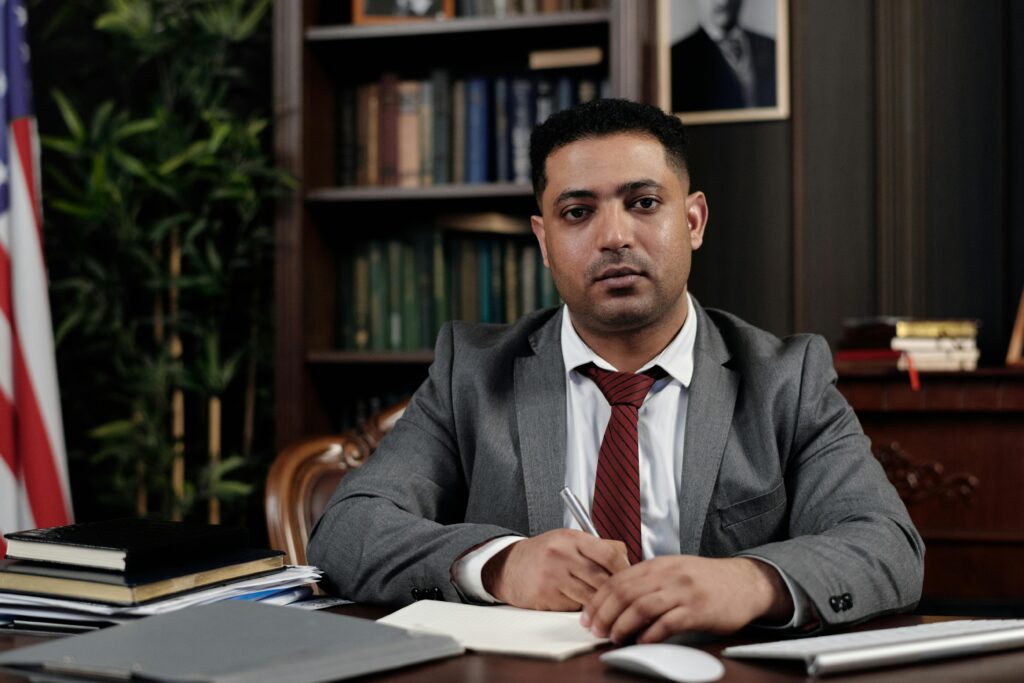In countless transactions and official processes, nothing moves forward without proper legal documents.
Whether you’re signing a contract, finalizing a deed, or authorizing someone to act on your behalf, the authenticity and integrity of your signature are paramount. This is where notarization adds a layer of official verification, acting as an impartial witness to the signing and confirming the identity of the individual.
Given this importance, not everyone is allowed to witness signatures and confirm identities – so who can notarize papers?
Understanding who has the legal authority to perform this service is essential if you need your documents authenticated. That’s why we’re here today: we at Mobile Notary Orlando will clarify the roles and qualifications of those authorized to notarize, guiding you through the process and ensuring your documents are handled correctly!
Read the article to the end and see how we can help you.
Who can notarize papers? Understand the role of notaries public

The main individuals allowed to notarize papers are notaries public. Picture them as impartial public officials who serve as a trusted witness to the signing of important documents. Appointed and commissioned by a state government, they have the legal authority to perform specific notarial acts.
A notary’s core function is to deter fraud and ensure the integrity of significant transactions, achieved by verifying the identity of the person signing the document, ensuring that the signer is who they claim to be. They also witness the act of signing itself, confirming that the signature was applied willingly and without coercion.
In many cases, a notary also administers an oath or affirmation, requiring the signer to swear or affirm that the contents of the document are true to the best of their knowledge.
It’s also good to remember that a notary’s authority is granted by the state government and is generally confined to the geographical boundaries of that state. A notary commissioned in Florida, for instance, can only perform notarizations within Florida.
They are legally bound to adhere strictly to the laws and regulations of their commissioning state regarding all notarial acts, ensuring consistency and legal compliance across all acts.
Aside from notaries, are there any other authorized officials?
Yes! While notaries public are the most common and accessible individuals authorized to notarize papers, it’s important to recognize that other officials can perform notarial acts in specific contexts.

Their authority is often derived from their elected or appointed positions, which already carry significant legal weight.
Attorneys, for example, are often authorized to perform notarial acts involving documents, particularly those directly related to their legal practice or their clients’ matters. This is because their role as officers of the court inherently involves a high degree of oversight and responsibility.
Judges and certain court clerks, in their official capacities, can also perform notarial acts, though they’re usually limited to documents directly related to court proceedings or filed within their respective judicial systems. Their role as judicial officers inherently includes the power to authenticate documents that are part of the legal record.
Furthermore, U.S. consular officers and ambassadors stationed abroad hold the authority to notarize documents. These officials can perform notarial acts on documents intended for use in the United States or for U.S. citizens abroad, convenient for Americans living or traveling internationally who need to have official documents authenticated.

In very limited and specific circumstances, other officials might possess a degree of authority to perform notarial acts. This could include certain military officers in deployed or emergency situations where access to traditional notarial services is impossible. However, these instances are exceptional and subject to strict regulations.
It is crucial to remember that while these other officials can perform notarizations, the most common and accessible route for general notarization needs remains through a commissioned Notary Public. They are trained specifically for this role and are readily available for a wide array of everyday notarization requirements.
What notaries cannot do: essential limitations to know
While notaries public are authorized to perform specific acts, there are clear limitations to their authority. Understanding these boundaries is crucial for both the notary and the person seeking notarization to avoid misunderstandings and ensure the process is conducted correctly.
Firstly, a notary public cannot notarize a document that they did not personally witness being signed – this is perhaps the most fundamental rule. The notary’s presence during the signing is what verifies the authenticity of the signature.
For example, if a document is pre-signed, meaning it was signed before the notary was present, the notary cannot stamp it. This rule is a critical safeguard against fraud and ensures that the notary fulfills their role as a witness to the signing act itself.

Secondly, a notary cannot notarize a document in which they have a personal interest, as they must be impartial. If a notary has a financial stake in the document or if the signer is a close family member or business partner, they must decline to notarize. This avoids any perception or reality of bias and upholds the notary’s commitment to ethical conduct.
Thirdly, notaries are not attorneys: they are strictly prohibited from providing legal advice about the document being signed.
They cannot explain the legal implications of a document, advise on which type of document to use, or offer any legal interpretations. Their role is limited to verifying identity, witnessing signatures, and administering oaths.
If you have questions about the document’s content or legal effects, you must consult with a qualified attorney.
Finally, notaries cannot certify the truthfulness of the content within a document, as their responsibility is limited to the identity of the signer and the voluntariness of the signature.
Finding a notary or authorized official
When you need a document notarized, “Where to find a notary public?” is probably the first question crossing your mind. Fortunately, there are several avenues for locating someone who can perform this essential service. The most common and readily available option is to seek out a commissioned notary public.
Mobile notaries are an increasingly popular and convenient choice. These professionals travel to your location (be it your home, office, or any other agreed-upon place), saving you considerable time and effort.

This mobile service is particularly beneficial for those with busy schedules, limited mobility, or urgent needs outside of standard business hours.
Many banks and credit unions also offer notary services to their customers, often at no additional charge or for a nominal fee. It’s always wise to call your specific branch to confirm their notary availability.
Shipping and business service centers, such as UPS Stores or FedEx Office locations, frequently have commissioned notaries on staff. These can be convenient stops if you’re already visiting for shipping or other business needs.
Attorneys, as officers of the court, can also perform notarizations, especially when the document pertains to their legal practice.
Additionally, some government offices (courthouses, city halls, and public libraries in certain communities) may provide notary services, although availability and hours can vary.
For those looking to notarize documents remotely, online notarization (also known as Remote Online Notarization) is an option in states that legally permit it, allowing notarization via secure video conference.
Regardless of where you find a notary, always ensure they are properly commissioned and have valid identification.

So – who can notarize papers?
The act of notarization is a legal safeguard primarily carried out by commissioned notaries public like ourselves.
As explained above, other officials can perform notarial acts in specific contexts, but the notary public is the most accessible and frequently utilized authority for verifying signatures and ensuring the integrity of various documents.
Understanding who is authorized to notarize papers is the first step in ensuring your legal documents are properly authenticated!
If you find yourself needing a notary for your important documents, Mobile Notary Orlando provides professional and reliable mobile notary services across Orange, Seminole, Brevard, and Osceola counties, ensuring your notarization needs are met with accuracy and efficiency. We’ll be there for you 24/7!






